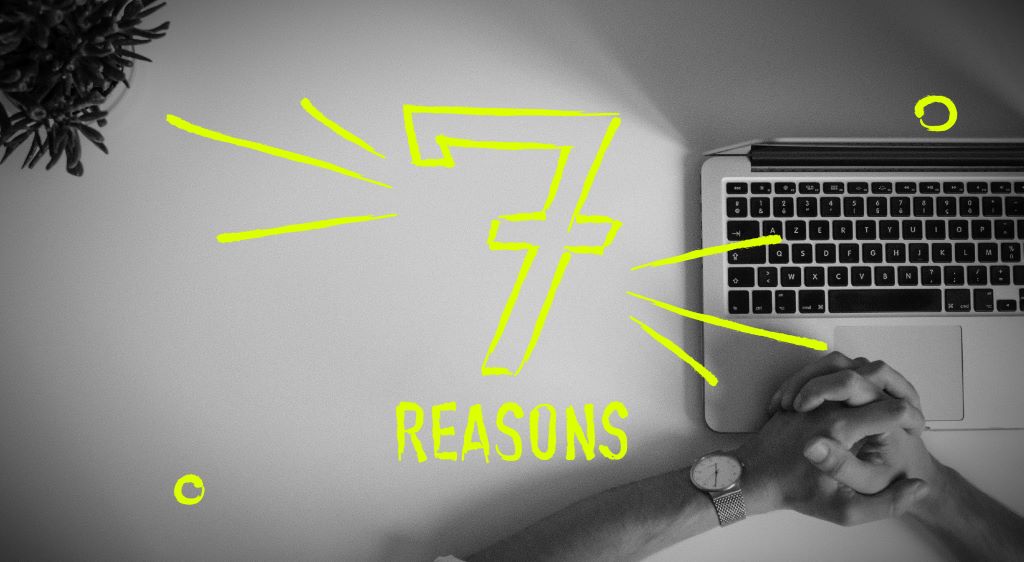Top 10 Freelancers’ Mistakes to Avoid

Table of Contents
- Ups and downs of a freelancer
- Top 10 don’ts for freelancers
- Don’t underestimate the importance of reputation and networking
- Don’t dump your rate
- Always take care of your working tools
- Check your clients before signing contracts
- Don’t work with no distinct schedule and formalized goals
- Thoroughly plan your transition to freelance
- Never ignore your physical and mental well-being
- Don’t live by short-term plans only
- Don’t leave yourself without any financial backups and savings
- Collect your portfolio
What should you learn before embarking on a freelance journey? Which potential troubles lurk on the way, and how to avoid them? At Lemon.io, we’ve been connecting the most talented European freelancers with Western startups since 2015. Here, we’ve pulled together the most common freelancers’ mistakes leading to quite real adverse consequences in the long-term perspective — and offered some recipes to avoid them. How to turn your freelance into a productive journey? Read on to know!

Freelance is popular — so it should be pretty straightforward. Sounds familiar? Former full-timers often decide to turn into freelancers with this same thought. They think everything’s going to be all right — otherwise, why do so many people gladly reject the 9-to-5 routine and register on the freelance IT platforms, looking for lucrative offers?
Of course, freelance work has its bonuses — freelancers plan their life themselves, rest whenever they want, and work at the most convenient hours. They develop new talents, pick up fascinating projects, and shudder to remember traffic jams on the regular commuting routes.
However, it’s always easier to remain optimistic when all the examples you see are positive. Where are the negative ones? Well, the thing is, freelancers who can’t make both ends meet remain invisible — and don’t affect your perception. Simple enough.
Ups and downs of a freelancer
What’s the life of an unfortunate freelancer look like?
They start taking orders, searching for more, getting their first money, and gladly taking on new projects. Unfortunately, very soon, the river of opportunities thins out to the trickle, all the savings dissolve in their daily needs, and the former luckiest bury their faces in their hands, wondering, “What have I done wrong?”
Let me tell you right from the start: not everyone is cut out to be a freelancer. Even if you’re bored by your daily office work, consider all the pros and cons before exploring the previously unknown realm with no escape routes prepared. Many people naively think the freelance world is open to everyone — and all the newcomers will soon feel the pleasant heavy cash load in their pockets even with no relevant experience whatsoever. It isn’t so. The freelance work scheme demands organization, communication, saving, and other vital skills — without them, it will be challenging to earn regularly and decently. People who could make a fortune soon give up because basic mistakes do not allow them to get proper orders and payments.
Weʼve decided to write an article highlighting ten typical freelancers’ mistakes. Our list is by no means exhaustive — but we tried to cover as many life and work areas as possible. It will be helpful both for programmers who just plan to dig their toes into the troubled freelance waters and those who have been earning on the freelance market for quite some time but still wonder if there’s a chance of improvement.
After each mistake, we’ll describe possible ways to avoid it and winning strategies one could use instead — to learn from bad experiences and become a much better entrepreneur.
Let’s roll!
Top 10 don’ts for freelancers
Don’t underestimate the importance of reputation and networking
Freelancers need to build their reputations steadily and constantly. Contrary to office work, your freelance wage directly depends on your symbolic value — positive feedback, ratings on the professional resources, and a network of potential employees who know about your proficiency. A wage boost is a question of time and inner schedule for full-timers. Freelancers can boost their rate any time, but the question is if they find people willing to pay it. If you work in the same industry as you’ve worked full-time, setting your rates is much easier (you’ve got your reputation intact).

Don’t dump your rate
Always take care of your working tools
You won’t earn money if you don’t have a smooth-running PC with all the pertaining programs and accessories. Computers tend to break down unexpectedly, just when you need them most. Be prepared. Without timely checkups, it’s hard to accomplish working tasks steadily and regularly. Buy licensed equipment and programs: free pirate versions can be troublesome. After such a version runs wild, you’d still need to buy a new one. Do you want to spare yourself tons of nerves? Don’t download anything uncertified and change hardware as soon as it starts bothering you.
Check your clients before signing contracts
The freelance world is full of scammers — and if you are not protected (e.g. by the vetting marketplace that controls and filters not only contractors but also clients), you’d better monitor everyone you’re working with. How can you be tricked? Oh, there are a lot of ways to dump people online without giving them money for their work.
Don’t work with no distinct schedule and formalized goals
If your goal is earning a decent sum of money every month, think over the sum that suits your lifestyle. Count the approximate number of productive hours — and estimate your desired rate. Remember that office workers get their salary regularly and in full, no matter how many hours they spend at work. A freelancer gets their money for actual work only. What does it mean? You’ll have to work much more to get the same sum (unless you boost your rate).
Thoroughly plan your transition to freelance
Don’t dive into freelance head first. Start freelancing while working full-time. Yes, it will be tough: after your regular workday, you’ll have to perform extra work at home — but it’ll pay off. First of all, you’ll get used to multitasking and deadlines (the closest friends of any freelancer). Secondly, you’ll have your regular salary in the first months and won’t have to explain to the nice suited men that you’ve got no money to pay your bills. Here’s one more piece of advice: don’t dive into freelance having health or money issues.
Never ignore your physical and mental well-being
Your working productivity depends on quite a lot of factors. Are your chair and desk convenient enough? (If not, beware of the back problems.) Do you have enough light? How regularly do you eat? Do you sleep well? All these factors greatly influence your productivity and the quality of your work. Your mental activity is the outcome of your physical condition. Poor health won’t allow you to stick to the deadlines and earn more.
Don’t live by short-term plans only
Make them longer and thought-over. Keep track of all your records, expenses, and payments due and received. As long as you do it, you are in good shape — what is more, the detailed history of your revenues and earnings makes it a lot more comfortable to follow the tendencies and statistics of your freelance business.
Don’t leave yourself without any financial backups and savings
Before starting a freelance path, you’d better collect 3 to 6 months’ worth of expenses in savings. Try to anticipate the expenses that are likely to arise and be prepared to cover them in the foreseeable future.
Collect your portfolio
Project after project, add all of them somewhere so that they could come in handy when your new client asks you to show who you are and what you have done (in order to explain to themselves why you deserve the rate you claim). So — even before you decide to turn into a freelancer, arrange everything you’ve done into a neat file. On the Internet, no one knows you’re not a dog until you show some credentials.
The freelance world is intriguing and full of freedom, unheard of amidst the office routine. Nevertheless, to get the most of it, you should avoid typical traps and scams, reschedule your working schedule, and always remember that you get what you earn. If the perspective of the lone earner frightens you, maybe it’s high time to pay attention to the vetting marketplaces.
Talent Acquisition and Matching departments care about all their pre-vetted developers, prepare them for job interviews, and polish their CVs for them to fit clients’ demands.
Try Lemon.io — we offer all the soft benefits you need to find your offshore work comfortably. If you decide to try freelance — come to us. We’ve got you covered.
Do you have some questions left? Read our FAQ — maybe you'll find the answers!
Why do most freelancers fail?
Here are a few possible reasons for their failure:
– Inability to plan their incomes from a long-term perspective;
– Underestimating the importance of networking;
– Rate dumping (trying to earn more by earning less doesn’t help);
– Careless attitude to the working tools (laptop, table/chair, licensed programs);
– Reluctance to pre-vetting of all the actual and potential clients (if you agree to any work, there’s a nonzero chance of being cheated);
– Absence of a distinct schedule and formalized goals;
– Ignoring physical and mental well-being;
– Inability to plan the financial backups;
– Absence of a credible portfolio.What is the biggest challenge for a freelancer?
It’s hard to choose between the wide assortment of challenges freelancers come across. Each concrete freelancer has a challenge they consider the biggest and the toughest. Here are just a few:
– Finding clients;
– Organizing a healthy schedule;
– Filtering the jobs without overworking;
– Maintaining a regular job and money flow;
– Choosing the trusted clients only.Is it difficult to start freelancing?
Nowadays, it’s extremely easy to start freelancing. If a person wants to join the freelancers’ squad, they have a lot of possibilities to do so. There are two main roads for such a person. The first road leads to autonomous job search without registration on some freelance resource. It’s quite good to do so if you have a pre-vetted contact database from your previous works. If you want to start anew, you can register on some of the popular freelance websites — Upwork, Freelancer, 99Designs, or the like. There, you’ll surely find some jobs that will fit your schedule.
What freelancers should not do?
There’re thousands of lists with do’s and don’ts for freelancers, and we also decided to include one in this FAQ. So, what does a list of don’ts for freelancers look like?
– Don’t check your emails too often — it will distract you from work and boost up your nervousness. Both will harm you and your income.
– Don’t spend time on Facebook, Twitter, or Instagram, unless it benefits your business. Social networks are conceived with a major thought of eating as much of your time as possible.
– Don’t take the responsibilities you can’t accomplish. It will harm your reputation, and the reputation is of utmost importance for every freelancer.
– Don’t neglect marketing while the times are fat. Marketing (and self-marketing) should be your daily bread. Search for opportunities to get to the spotlight, show yourself in the beneficial light, and plan your self-PR activities. IT world is a world of incessant competition.What are the risks of freelancing?
Here’s a list — but it’s by no means full since the freelancing world is full of risks.
Losing money. If you dump your rate too much (struggling for new clients), you’ll eventually lose your potential earnings and stop thinking of the rate raise because the anxiety won’t let you make this step.
Losing time. Imagine how much you would earn working full-time with paid holidays and sick leaves.
Losing health. Chasing new clients and earnings, freelancers often overwork, become constantly tired, and lose their health.
Losing clients. If you managed to settle a convenient working bubble before starting freelancing, think twice — maybe you’ll get less than you have now.
Explore our stacks and pages: Jest, React + TS, WebRTC, CodeIgniter, DocumentDB









